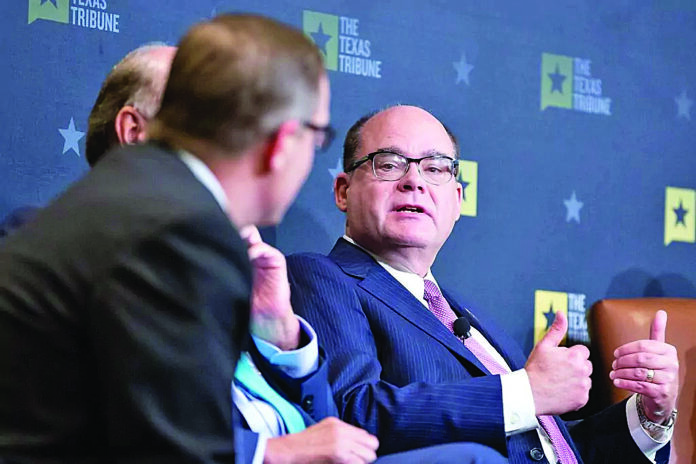As the number of COVID-19 cases expectedly continues to increase in the Rio Grande Valley, one medical professional says he is “guardedly optimistic” about the region’s pandemic prospects.
Dr. John Krouse, dean of the University of Texas Rio Grande Valley’s School of Medicine, said Wednesday that after assessing federal data regarding the state’s condition in the coronavirus pandemic, he is hopeful that the region’s prompt reaction to it could be effective.
“I think that our local communities, counties and cities did very early on adopt a more strict stance regarding staying at home and sheltering in place, and I think that we will see maybe another week of growth,” the dean said. “But at that point, we will have been at least 14 days or more in our shelter-in-place orders across the Valley.
“So, I am very optimistic in the models that we are seeing, which suggest that we may do well, given the severity of the problems we are seeing in other places. I am very guardedly optimistic.”
Krouse joined U.S. Rep Vicente Gonzalez, D-McAllen, that afternoon for the congressman’s first telephone town hall, which garnered about 4,000 listeners at its most.
One participant asked Krouse the simple question: “When are we going to peak?”
“In the latest models I am seeing come out of the state, it is looking at peaking perhaps in early May,” Krouse said. “It really depends on how careful we are in our interactions, how carefully we practice social distancing, how careful we are with staying home.”
He said he expects case numbers in the Valley to grow, but likely to level off in early May.
Another resident inquired about antibody testing, which assesses a person’s immunity to the virus after being exposed. Krouse said that antibody tests will be coming to the university in the next two to three weeks.
“Antibody testing is where we are going to be going, it’s the next treatment of this disease,” he said. “That will be very useful because ultimately, you’ll know first if someone has been exposed, and second, if they are immune, which is going to be so critical for us to be able to open up the economy the way we really want to.”
Residents brought up a variety of concerns to the dean, including the risks of contracting at grocery stores, which he explained were low. His best advice was in tune with what has been iterated for the past month across the nation: practice social distancing, and wash hands for at least 20 seconds.
“If you look at pandemics through history, the best way to keep the population safe is to make sure that we keep people away from each other, keep people who are sick in isolation,” Krouse said. “Because we really can shut down the spread.”
Krouse was also asked about the severity of the virus to diabetics.
“Anyone with diabetes is considered to be relatively immunocompromised,” he explained. “And what that means, whether it’s Type 1 or Type 2, that puts you at a greater risk for both bacterial and viral infections. So, I would have a much shorter tolerance for your symptoms if you are diabetic.”
Residents also took the opportunity to get clarification from the congressman of the Coronavirus Community Relief Act, which he co-sponsored, and the Coronavirus Aid, Relief and Economic Security (CARES) Act.
Gonzalez mentioned that House Speaker Nancy Pelosi reached out to representatives Tuesday morning, saying she wants them to go back to D.C. by the end of the month.
“We are trying to fill in the gaps of people and businesses who fell through the cracks in this massive $2.2 trillion spending bill,” the congressman said.
He also reassured that the Valley will be receiving the supplies and funds needed to stay afloat.
“We have a lot to be concerned with, but we are going to be getting the resources we need from the state, and I totally expect that we are going to get our fair share of them.
Gonzalez also commended UTRGV’s School of Medicine, which opened COVID-19 testing sites in both its Edinburg and Brownsville campuses. In its first week of testing, 338 people were tested by appointment, and more than 17,000 calls for screening were received.
“We would clearly be in a much weaker position (if the school did not exist),” Gonzalez said of the School of Medicine, which was founded in 2014. “The medical school has been very proactive in addressing this pandemic here locally in our community. It would have made a huge difference if this medical school was not in our community and we were dealing with it just with our resources that we have without it. Certainly, this has been a huge benefit for South Texas.”




